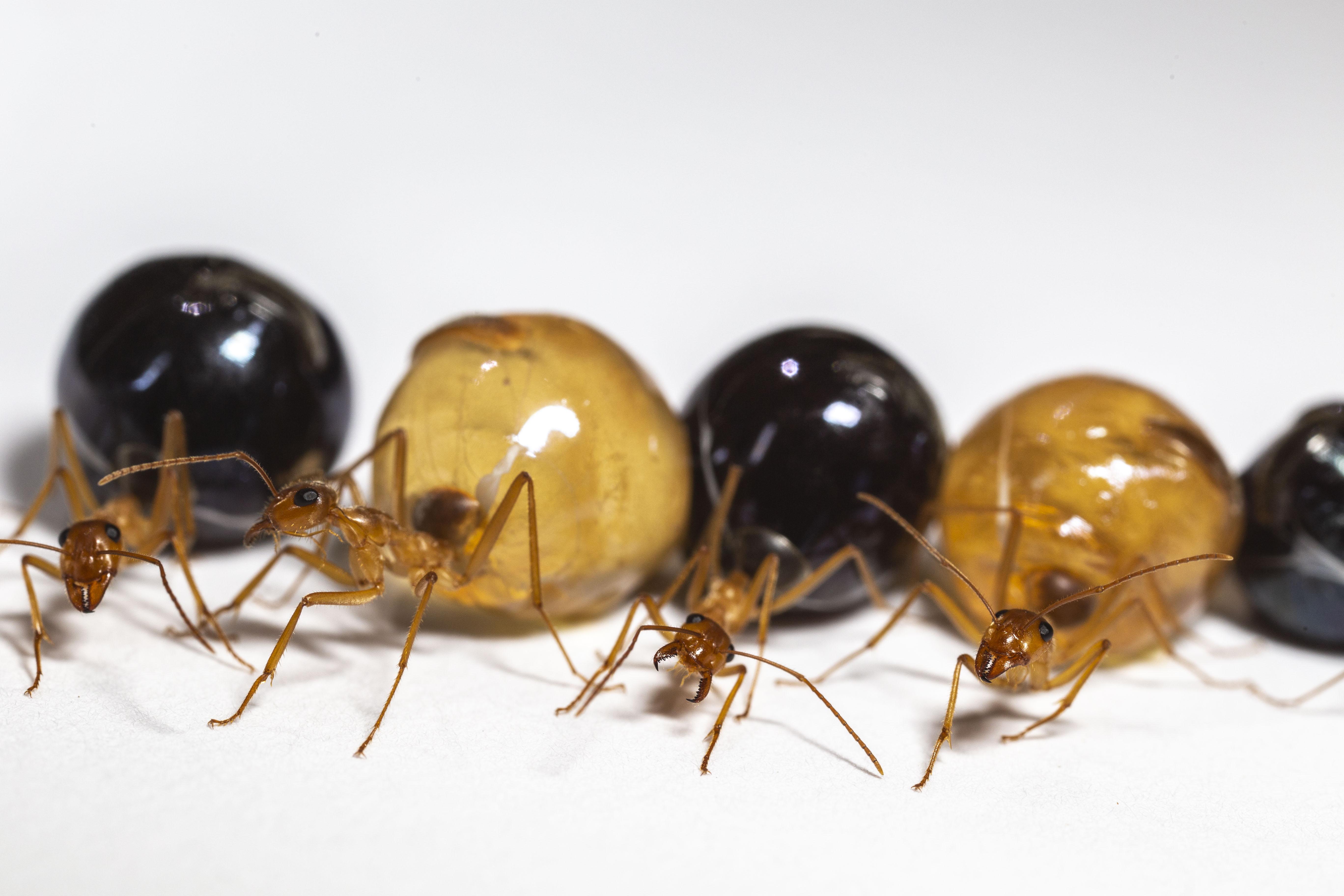
Image credit: Michele Lanan
Evolution of Living Storage – Genomic and Behavioural Analysis of Honeypot Ant Repletism
Supervisor: Dr Adria LeBoeuf
How can specialisation come about in a distributed system? In this project, you will study the genomics and complex behaviours of honeypot ants using automated fluorescent flow tracking, focusing on their unique system of resource distribution and task specialisation. Some ants in honeypot colonies, "repletes," act as living storage units, storing food for the colony, never leaving the nest and sharing food with others mouth-to-mouth. Within the same colony, different repletes store different things. This specialisation is analogous to the division of labour in human societies and between the cells of multicellular organisms. To understand how this specialisation comes about, you will employ an innovative tracking system that uses fluorescent markers to trace the movement and exchange of food within ant colonies. This method allows us to visualise these processes in real-time, akin to observing the flow of traffic within a city. Additionally, this project will incorporate comparative genomics to understand the genetic basis of repletism by sequencing and analyzing the genome of a newly discovered honeypot ant species from Madagascar. By comparing this genome with existing honeypot ant genomes and those of related non-honeypot species, we will identify genetic adaptations associated with extreme food storage behavior, abdominal distension capacity, and metabolic regulation in repletes. The genomic component will involve bioinformatics analysis to identify candidate genes for repletism, including those involved in cuticular flexibility, lipid metabolism, and behavioral regulation. Using ant colonies as a model for other cooperative entities allows us to more easily dissect the principles of cooperation, specialisation and resource sharing in complex systems.
Type of work
Working with delicate ants and automated behavioural and transmission tracking. This requires image processing and network analysis and a serious level of comfort with coding. You may also do field work to get more honeypots in the Sororan desert.
Importance of the area of research concerned
By studying how ants efficiently distribute and manage resources, we gain insights into the fundamental biological processes that underlying complex processes like aging, opening doors to potentially apply these principles to enhance our organisational and technological systems.
References
Efrat Esther Greenwald, Lior Baltiansky, Ofer Feinerman (2018) Individual crop loads provide local control for collective food intake in ant colonies eLife 7:e31730
Sawh, I., Bae, E., Camilo, L., Lanan, M., Lucky, A., Menezes, H. M., ... & Barden, P. (2023). Myrmecological News.
